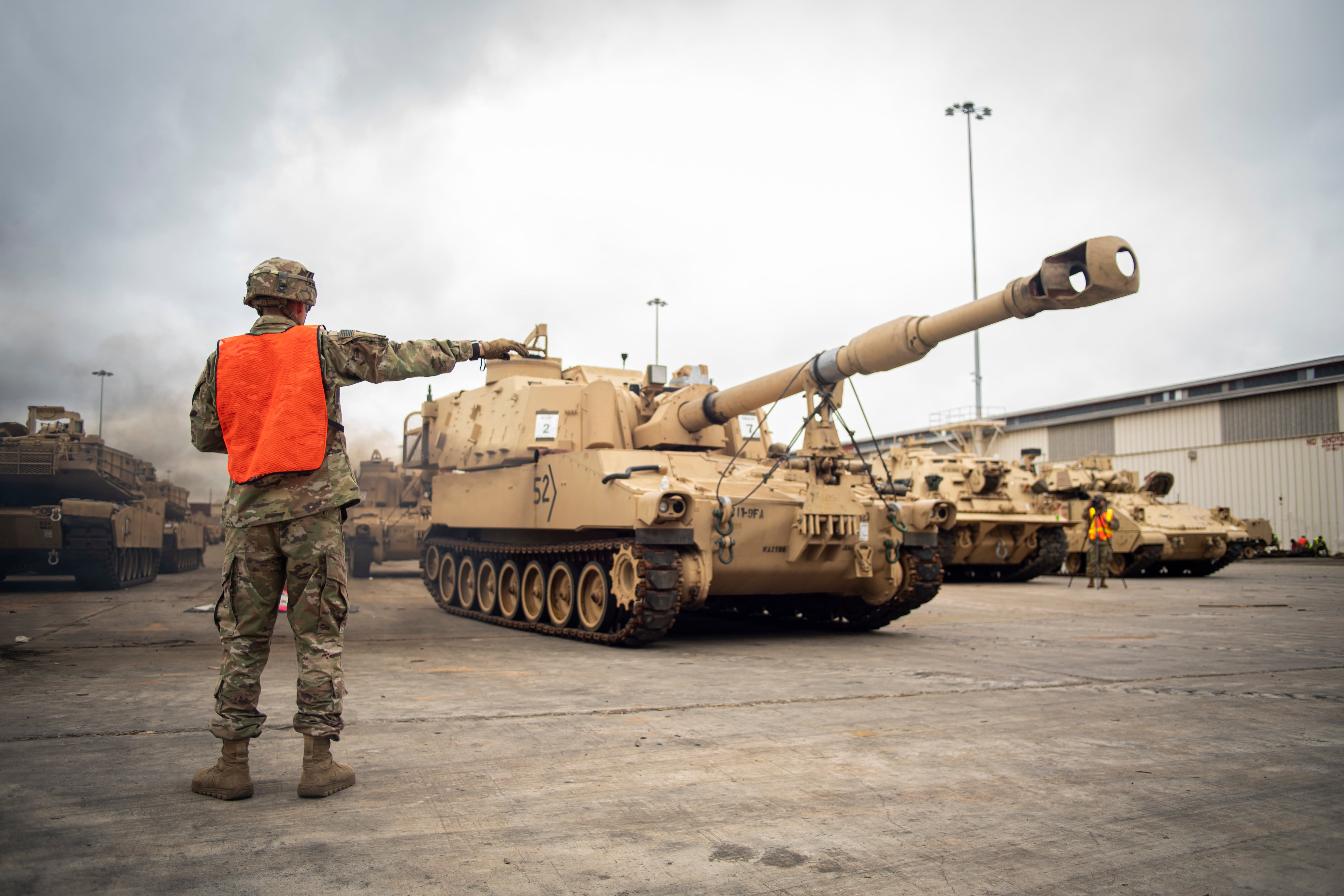As part of an ongoing review of planned closures of U.S. military installations across Europe, the Army has announced that it won’t close seven bases in Germany in Belgium after all.
The service will retain six sites and transfer one to the Air Force, according to a Friday U.S. Army Europe and Africa press release. Most were previously scheduled to be closed as part of the Defense Department’s 2015 infrastructure consolidation initiatives.
The installations staying in Army hands are Barton Barracks, Ansbach, Germany; Pulaski Barracks, Kaiserslautern, Germany; Coleman Barracks, Mannheim, Germany; Weilimdorf Warehouse, Stuttgart, Germany; Amelia Earhart Center, Wiesbaden, Germany and Daumerie Caserne, Benelux, Belgium. One German base, Husterhoeh Kaserne in Pirmasens, will transfer to the Air Force, the release said.
The Army is keeping the installations because of its increasing presence in Europe, the release explained.
The Biden administration reversed a plan to withdraw U.S. forces from Germany started by President Donald Trump. Defense Secretary Lloyd Austin announced in April that the DoD would deploy an additional 500 troops there on top of the 35,000 Americans stationed there on a permanent or rotational basis.
The DoD considers its footprint in Germany to be a critical part of its efforts to deter Russian aggression in eastern Europe.
One of the retained installations, Coleman Barracks, is home to warehouses holding some of the Army’s pre-positioned equipment for the European theater, the release said. The site is “responsible for the storage, security, maintenance and issuance of more than 800 armored vehicles and associated equipment pieces,” according to the release.
A senior Army commander told Defense News last year that such sites will continue to play a key role in the DoD’s new strategic great power competition efforts beyond their initial intent to enable U.S. troops to rapidly fall into equipment in the case of a regional conflict.
RELATED

“We needed to relook [at] the purpose of Army pre-positioned stocks because, in the past, Army pre-positioned stocks were essential and key to great power conflict,” said Gen. Edward Daly, chief of Army Materiel Command. “Now, based on the Army senior leaders’ intent, we want to focus it as much on great power competition, to use those stocks in great power competition as much as we had planned on using those stocks for great power conflict.”
Defense News land warfare reporter Jen Judson contributed to this report.
Davis Winkie covers the Army for Military Times. He studied history at Vanderbilt and UNC-Chapel Hill, and served five years in the Army Guard. His investigations earned the Society of Professional Journalists' 2023 Sunshine Award and consecutive Military Reporters and Editors honors, among others. Davis was also a 2022 Livingston Awards finalist.




